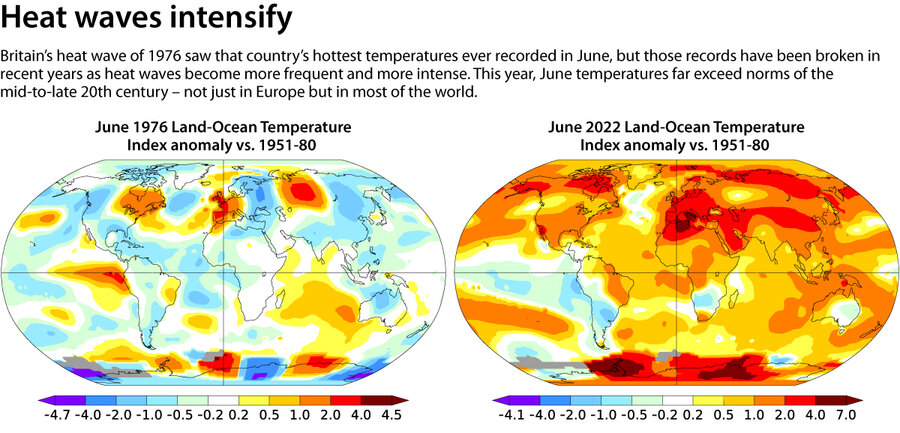Heat waves make global warming tangible. But do they change mindsets? As people balance their political priorities, it’s still hard for climate action to rise to the top.
Monitor Daily Podcast
- Follow us:
- Apple Podcasts
- Spotify
- RSS Feed
- Download
 Laurent Belsie
Laurent Belsie
If this is the age of high prices and austerity, how come sales of fragrant soaps and candles are holding up? If this is the summer of our discontent, why are people still buying chocolate?
It’s called the “lipstick effect” – the purchase of cheaper luxury goods to indulge oneself and, perhaps, forget for a while hard economic times.
Like many retailers, Bath & Body Works has seen sales fall in its most recent quarter. But consumers continue to snap up fragrant soaps, body sprays and washes, even candles – items it calls “affordable luxury.” Sales of air fresheners actually went up compared with the same period a year ago.
Ditto for chocolate. Rising prices mean Americans are buying a little less of the sweet stuff this year, but sales of cheaper store-brand chocolate is up 8% in the last six months. This is typical lipstick effect. Consumers don’t give up indulgences, they just buy cheaper ones. That’s why, since March, fewer people are eating at full-service restaurants, while fast-food traffic is up.
Ice cream prices are up 12.5% over the past year, but analysts are still predicting strong sales as an affordable indulgence. The lipstick effect also explains why movie theaters have seen more customers, even before the “Top Gun” sequel kicked off the summer. Consumers don’t give up the indulgences they can still afford.
The pandemic plays a role in this. Cooped up for more than a year, families are insisting on enjoying a summer vacation. Come fall, they may well cut back, analysts say, but not before that one last summer splurge.











